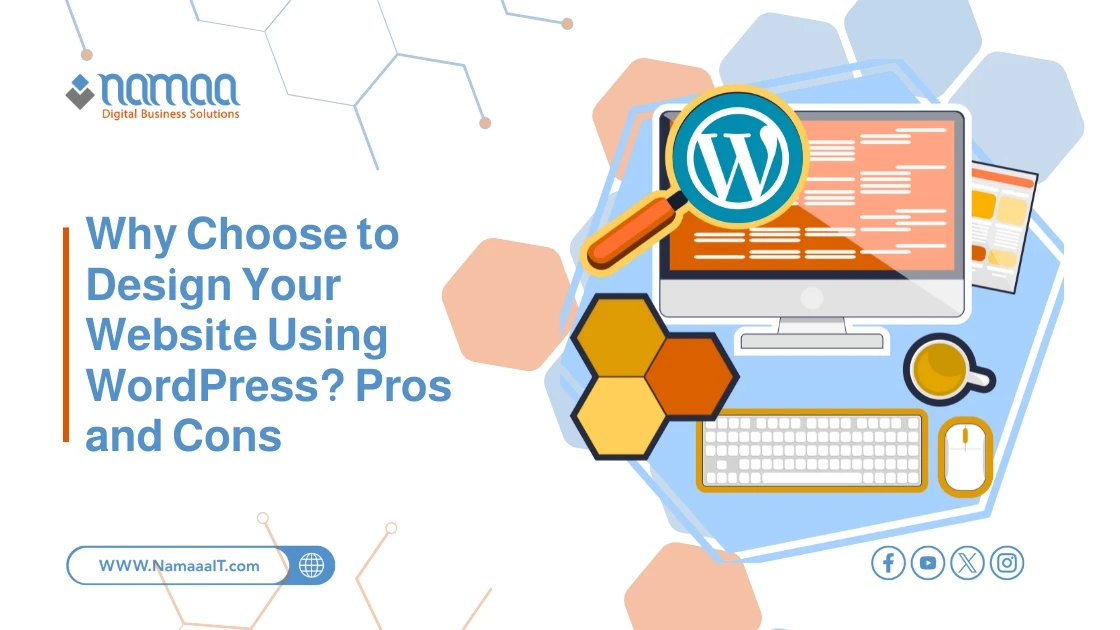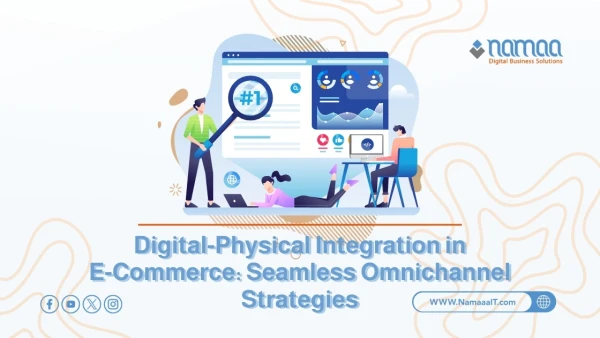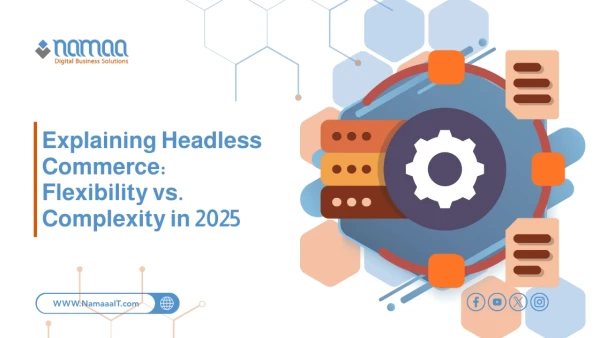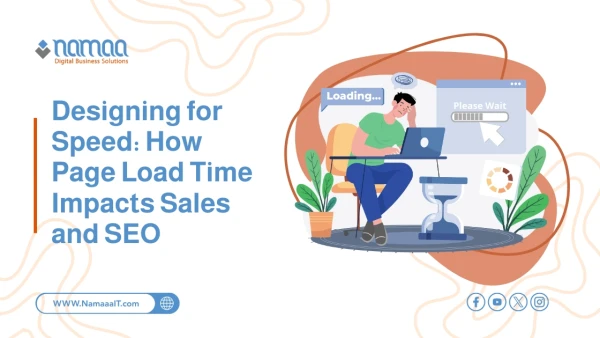When planning to create a website, you’ll find yourself facing many options. However, WordPress often tops the list. This platform is not just a popular tool it is actually used to build over 40% of websites globally, making it one of the most widely used content management systems (CMS). But before you decide whether WordPress is the right choice for your site, it's important to fully understand what it offers and what aspects may not suit your needs.
In this article, we’ll provide a comprehensive overview of the advantages and disadvantages of designing websites using WordPress, aiming to help you make an informed decision that aligns with the nature of your projectwhether it's an online store, a personal blog, a company website, or an educational platform. Understanding the strengths and weaknesses of WordPress is the first step toward choosing the best solution for building a strong and effective digital presence.
What is WordPress?
WordPress is an open-source Content Management System (CMS) used to create and design all types of websites—personal blogs, online stores, corporate sites, and even educational platforms. It was first launched in 2003 and has since evolved into one of the most popular website-building tools, powering more than 40% of websites worldwide, including those of major corporations and global brands.
The reason behind this widespread use is its ease of use and high flexibility. Users don’t need deep knowledge of programming or design to build a professional website with WordPress. Thanks to ready-made themes and plugins, it’s easy to customize the site’s appearance and functionality. Whether you want to add a contact form, an online store, a blog, or a photo gallery, there are ready-to-use plugins that let you do it without writing a single line of code.
WordPress comes in two versions:
WordPress.com, a hosted platform that offers a simplified but limited customization experience.
WordPress.org, which you can download and install on your own hosting, giving you full control over your website.
The latter is the preferred option for those seeking full flexibility and professionalism.
As an open-source platform, WordPress is continuously developed by a large global community of developers and users, ensuring regular security updates and ongoing improvements—making it an ideal choice for those wanting to build a powerful, scalable website over time.
Advantages of Building a Website with WordPress
If you're thinking about launching a website, choosing the right platform is one of the most critical decisions. WordPress is the preferred choice for millions—not just because it’s free or popular, but because it offers a wide range of benefits suitable for different types of projects, from personal blogs to large e-commerce stores. Below are the top advantages of using WordPress, clearly organized into key categories:
1. Free and Open Source
One of WordPress's strongest selling points is that it is free and open source. This means you don’t have to pay to use the platform, and you can install it on any hosting that supports PHP and MySQL. Its open-source nature allows developers to customize the source code to fit their needs, offering a level of flexibility few other platforms provide.
2. User-Friendly Interface
WordPress has a simple and intuitive interface, even for non-technical users. You can create pages, add blog posts, upload images, and customize your site’s layout through a graphical dashboard—no coding skills required. It also features the modern Gutenberg editor, which lets you build content using visual blocks, similar to design software.
3. A Wide Variety of Design Templates (Themes)
WordPress offers thousands of free and premium themes that cater to every type of website: blogs, business sites, e-commerce stores, portfolios, and more. Most themes are easy to customize and allow you to adjust colors, fonts, and layouts to suit your branding.
4. Extensive Plugin Ecosystem
One of WordPress's greatest strengths is its plugins. There are over 50,000 free plugins on WordPress.org, along with thousands of premium ones offering advanced functionality. These plugins cover everything from SEO optimization, security, and speed enhancements to contact forms, payment systems, booking tools, and page builders—no need for custom coding.
5. SEO-Friendly
WordPress is built with SEO best practices in mind, making it easier for your site to appear in Google search results. Plugins like Yoast SEO and Rank Math further assist you in optimizing content, keywords, URLs, and meta descriptions without requiring deep technical knowledge.
6. Highly Flexible and Scalable
Whether you run a small blog or a large online store, WordPress can grow with your needs. It’s highly scalable with custom plugins and can integrate easily with external services like payment gateways, email marketing tools, and CRM systems.
7. Responsive Design Support
Most modern WordPress themes are mobile-responsive, meaning your website will display properly on smartphones, tablets, and desktops. This is crucial today, as more than half of web traffic comes from mobile devices.
8. User Role Management and Permissions
If you work with a team or want to allow multiple contributors, WordPress has a robust user role management system. You can assign different roles like administrator, editor, author, or subscriber—helping you manage content and access permissions effectively.
9. Arabic and Multilingual Support
WordPress fully supports Arabic including a right-to-left (RTL) interface and dashboard. You can also build multilingual sites using plugins like WPML or Polylang, making it ideal for both local and global markets.
10. Fast Launch and Time-Saving
Thanks to ready-made themes and plugins, you can launch a professional website in a very short time. Instead of spending months on design and development, you could have your site live in days—or even hours. This is especially helpful if you're starting with limited resources.
11. Large Support Community and Learning Resources
WordPress has a massive global community of developers and users. You’ll find answers to almost any problem through official forums, YouTube tutorials, blogs, and training courses that cover every aspect of using the platform.
12. Integrates with Digital Marketing Tools
WordPress can be integrated with marketing tools like Google Analytics, Facebook Pixel, email platforms like Mailchimp, and ad services like Google Ads—making it easy to track performance and improve your marketing efforts.
13. Advanced Backup Options
There are many plugins available for automated backups, such as UpdraftPlus and BackupBuddy. These plugins allow you to save your backups to cloud services like Google Drive or Dropbox, ensuring your data is safe in case of any technical failure.
14. Multiple Security Options
While website security depends on how you use and manage your site, WordPress offers powerful security plugins. Tools like Wordfence and Sucuri can help protect your site from threats, monitor suspicious activity, and prevent unauthorized access.
15. Full Ownership and Control
By using WordPress.org with your own hosting, you maintain complete control over your website and data. You're not tied to the rules of a closed platform, and you can move, modify, or expand your site however you choose.
16. Suitable for Various Types of Websites
WordPress isn't limited to a single type of website. You can use it to create a blog, corporate website, e-commerce store, membership site, e-learning platform, forum, online magazine, or even a booking website. This flexibility makes it a unified solution for most projects.
17. E-Commerce Support via WooCommerce
By adding WooCommerce, you can turn a WordPress site into a full-featured online store. WooCommerce supports both digital and physical products, shipping, taxes, and payment gateways like PayPal and Stripe, along with numerous plugins to customize the shopping experience.
18. Improved User Experience
Modern WordPress themes focus heavily on user experience in terms of design and easy navigation. You can control site speed, content arrangement, and interface optimization to create the best impression for your visitors.
19. Performance and Content Analytics Tools
In addition to Google Analytics, you can use plugins to analyze page performance, track clicks, view heatmaps, and enhance user experience based on data insights.
20. Long-Term Investment
Since WordPress is an evolving platform, building your website on it is a long-term investment. You won’t need to switch systems after a short time, as the site can be developed and expanded alongside your project’s growth.
Learn More: Specifications of a Successful Website
Disadvantages of Designing a Website with WordPress
Although WordPress is one of the most popular and widely used content management systems, it’s not perfect. Like any system, it has its advantages and limitations. It's important to understand potential drawbacks before fully committing to avoid unpleasant surprises. Here’s a detailed look at the main disadvantages of using WordPress:
1. Continuous Maintenance Required
WordPress requires frequent updates to its core system, plugins, and themes. Ignoring updates may expose your site to security vulnerabilities or cause performance issues. Sometimes, updates can cause plugin conflicts or break the site's design, making maintenance a constant and potentially annoying task, especially for non-technical users.
2. Overdependence on Plugins
While plugins provide WordPress with enormous flexibility, overreliance on them can lead to issues. Every installed plugin is a potential point of failure or conflict. Using too many plugins can slow down your site, affect performance, or increase the risk of hacking—especially if plugins are outdated or unreliable.
3. Site Performance May Be Slower
Compared to websites built with custom technologies or lighter CMS platforms, WordPress websites may perform slower—particularly if not well optimized. Too many plugins, heavy themes, or weak hosting can lead to slow page loads, negatively affecting user experience and search engine rankings.
4. Frequent Security Threats
Because WordPress is so widely used, it’s a favorite target for hackers. Vulnerabilities in plugins, themes, or the core system can be exploited to hack sites or inject malicious code. Securing a WordPress site requires extra effort, trusted security tools, and strict protection practices.
5. Advanced Customization May Require Technical Skills
While WordPress is easy to use at a basic level, advanced customization often requires knowledge of HTML, CSS, PHP, or JavaScript. If you want a custom design or to modify specific functionality, you may need a developer, which increases costs. This contrasts with the common perception that WordPress is entirely beginner-friendly.
6. Variable Quality of Themes and Plugins
Since thousands of developers contribute to WordPress themes and plugins, the quality varies greatly. Some themes may look good but lack speed or security optimization. Some plugins are unsupported or abandoned, becoming a source of technical problems or security risks.
7. Hidden Costs
WordPress itself is free, but once you start adding premium themes, paid plugins, strong hosting, security tools, and backups, you may find yourself paying more than expected. In some projects, the monthly or yearly costs can exceed your original plan.
8. Limited Official Customer Support
As an open-source project, WordPress does not have official support like some proprietary platforms. Support usually comes from forums or community groups, which means you might have to search and wait for answers. If you face a critical issue, you may not find a quick solution without hiring a professional developer.
9. Increasing Complexity Over Time
As your website grows, so do the plugins, features, and data. This means more time and effort are needed for daily management—from updates and comment moderation to performance monitoring. Website management may become exhausting, requiring a tech team or external help, especially for fast-growing sites.
10. Gutenberg Editor Performance Issues for Some Users
Although the Gutenberg editor is a step toward easier visual editing, many users still find it uncomfortable or limited in certain tasks—especially when creating complex pages or using multiple blocks. Users may feel the editor lacks the freedom offered by visual builders like Elementor or WPBakery.
11. Lack of Strict Review for External Plugins and Themes
While WordPress.org has a team overseeing its plugin library, themes and plugins sold outside the platform often don’t undergo rigorous review. This opens the door to low-quality or unsafe plugins, increasing risk when downloading from untrusted sources.
12. Heavy Customization Can Complicate Updates
If you directly modify a theme or plugin instead of using child themes, updates may cause loss of your changes or break features. Proper customization of WordPress requires professional practices to ensure long-term stability.
13. Plugin Compatibility Issues
Not all plugins work well together. Sometimes, installing a new plugin can lead to unexpected conflicts that break core functionality. Troubleshooting these issues can be confusing and may require experience or technical help.
14. Difficulties in Building Advanced Web Applications
Although WordPress can be used to build complex sites, it’s not the ideal choice for developing advanced web applications from scratch. If your project requires highly complex functions, you may be better off using custom frameworks like Laravel or Django.
Learn More: Top 7 Modern Web Development Technologies in 2025
Top Plugins That Enhance Your WordPress Experience
Plugins are what give WordPress its true power — they expand your website's functionality and add features without the need to write any code. Whether you're building a blog, an online store, or a company website, there are essential plugins that improve performance, security, and user experience:
Yoast SEO or Rank Math are among the most powerful SEO plugins. They help you write SEO-friendly content, create XML sitemaps, and optimize page titles and meta descriptions.
For security, Wordfence Security is one of the top choices, offering a firewall, attack monitoring, and protection against hacking attempts. Sucuri Security is another option that provides comprehensive threat detection and prevention.
For better performance, you can use WP Rocket or W3 Total Cache to speed up your site through caching and page load optimization. To reduce image sizes without compromising quality, Smush or Imagify are excellent options.
If you're using WooCommerce for your store, plugins like WooCommerce PDF Invoices (for sending automatic invoices) and Stripe for WooCommerce (for secure payment options) are very useful.
For backups, UpdraftPlus is one of the most trusted plugins, allowing you to schedule backups and store them on Google Drive or Dropbox.
Using these essential plugins not only makes your website more professional, but also saves you a great deal of time and effort in management, protection, and performance improvement.









